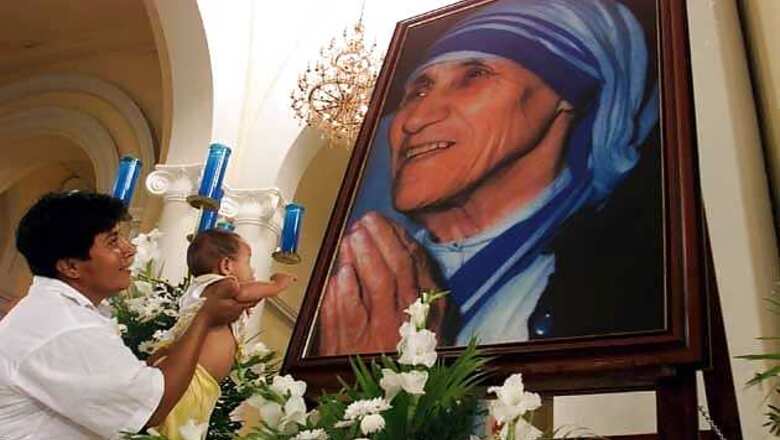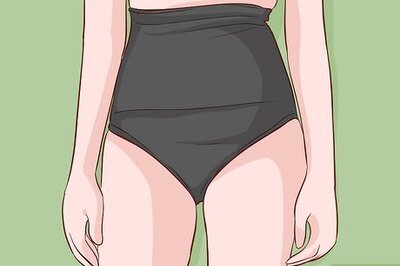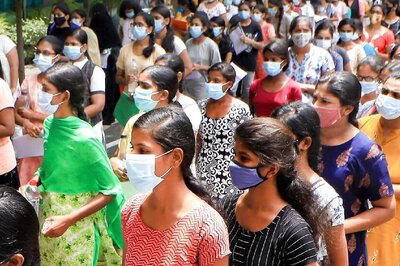
views
New Delhi: A statement on Mother Teresa by the RSS chief Mohan Rao Bhagwat has led to a nationwide controversy. Speaking at an RSS programme, Mohan Bhagwat said that Mother Teresa's caring for the poor and the sick had religious motives and the conversion was the main intention. Minutes after he made this comment, people on the other side of the ideology started questioning and condemning his statement.
The opposition Congress to TMC to the Left have strongly criticized his views on Mother Teresa asking him to withdraw it. Twitter is also abuzz with both pro and anti Teresa tweets. However, it is not the first time that Mother Teresa's works are being questioned or criticized.
Mother Teresa faced several controversies even during her own lifetime. She was questioned by many including the several Western scholars. Some of them were the same Roman Catholics like Mother Teresa herself.
When the Vatican decided to beatify her, researchers were called into question the saintly image of Mother Teresa after carrying out research into her life.
According to a report in United Kingdom's 'Daily Mail' published in March 2013, a number of critics have questioned how much of the saintly image of her is justified. Writing in journal Studies in Religion/Sciences, Serge Larivie and Genevieve Chenard, say Teresa's hallowed reputation does not stand up to scrutiny.
Professor Larivie said, 'While looking for documentation on the phenomenon of altruism for a seminar on ethics, one of us stumbled upon the life and work of one of Catholic Church's most celebrated woman and now part of our collective imagination - Mother Teresa.
'The description was so ecstatic that it piqued our curiosity and pushed us to research further.' After studying nearly 300 documents on her life, they concluded that a number of issues surrounded the nun were not taken into account by the Vatican. These included 'her rather dubious way of caring for the sick, her questionable political contacts, her suspicious management of the enormous sums of money she received, and her overly dogmatic views regarding, in particular, abortion, contraception, and divorce.'
They also say that following numerous natural disasters in India she offered prayers and medallions of the Virgin Mary but no direct or monetary aid.
But she accepted the Legion of Honour and a grant from the Duvalier dictatorship in Haiti, said prof Larivee, and although millions of dollars were transferred to the various bank accounts, most of the accounts were kept secret. Dr Larivie says, 'Given the parsimonious management of Mother Teresa's works, one may ask where the millions of dollars for the poorest of the poor have gone?'
Some claim that her image may have been built upon a meeting in 1968 with the BBC's Malcom Muggeridge, an anti-abortion journalist who shared her right-wing Catholic values. It was his promotion of her which led to her fame, they say.
However, her critics also admit that Mother Teresa was genuinely engaged in the service of the poorest of the poor and terminally ill patients and lepers. But they also argue that 'Nevertheless, the media coverage of Mother Teresa could have been a little more rigorous.'
Renowned writer Christopher Hitchens made the most controversial remarks on Mother Teresa. Mother Teresa's image as an innocent do-gooder was false, Hitchens had said, and he attacked it hard during his career.
According to a report in 'Christian Post', quoting Mark Twain, Hitchens said about Teresa "Give a man the reputation for being an early riser and that man can sleep until noon."
Hitchens insisted that Mother Teresa was anything but the apolitical savior of the poor that she was known to be. Rather, he blasted the nun for being a willing political tool for the Vatican, a validator of corrupt, right-wing political leaders, and even more surprisingly, a suppressor, rather than savior, of the poor. Mother Teresa was incorrectly adored by the media, he insisted. In "Hell's Angel", a documentary, Hitchens made about Mother Teresa, the author reveals that what irked the most about Mother Teresa was claim to being apolitical, despite evidence he believed disproved her claim.
Hitchens argued in the documentary that Mother Teresa's use of her international fame to argue for anti-abortion policies was the result of her being a political tool for the Vatican, and she is said to have urged political leaders around the world to pass anti-abortion legislation in their countries, an ever-important issue for the Catholic Church.
Mother Teresa was born in Albania, in 1910. She became a nun at the age of 18, devoting her life to helping the poor. One of her most famous projects was a home in Calcutta 'Missionaries of Charities', that took in the dying and destitute, in order to give them comfort in their last days.
She died in Calcutta in 1997, at the age of 87. She was beatified by Pope John Paul II in 2003.




















Comments
0 comment